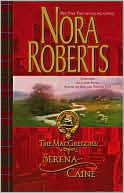
Without Reservations: the travels of an independent woman
Alice Steinbach
Alice is a woman in her 50's who is divorced, has two grown sons who are leading their own lives, and loves her job at a newspaper reporter and columnist. However, when she looks in the mirror, she wonders where the risk-taker has gone and is worried that she is only defined by her actions. She decides to take a leave of absence from work and explore who she truly is while living in Paris, England, and Italy.
This book forced me to make an insightful observation about myself: I don't like travel memoirs that are based-solely on self-reflection. I like my travel memoirs to be humorous, contain historical/ecological information in them, or at least vividly describe the people and places that are encountered. Without Reservations was simply (or should I say complexly) self-reflection and sole searching with the surroundings and new-found friends playing a secondary role.
I did like the reasoning behind Alice's trip: she was worried that she was so independent and entrenched in her career that she was being judged based on those qualities alone. But, who else was she? This is something I struggle with as well so many of her reflections that went down those lines resonated with me.
Overall, if you like the self-reflective type of memoir then this may be your book!










